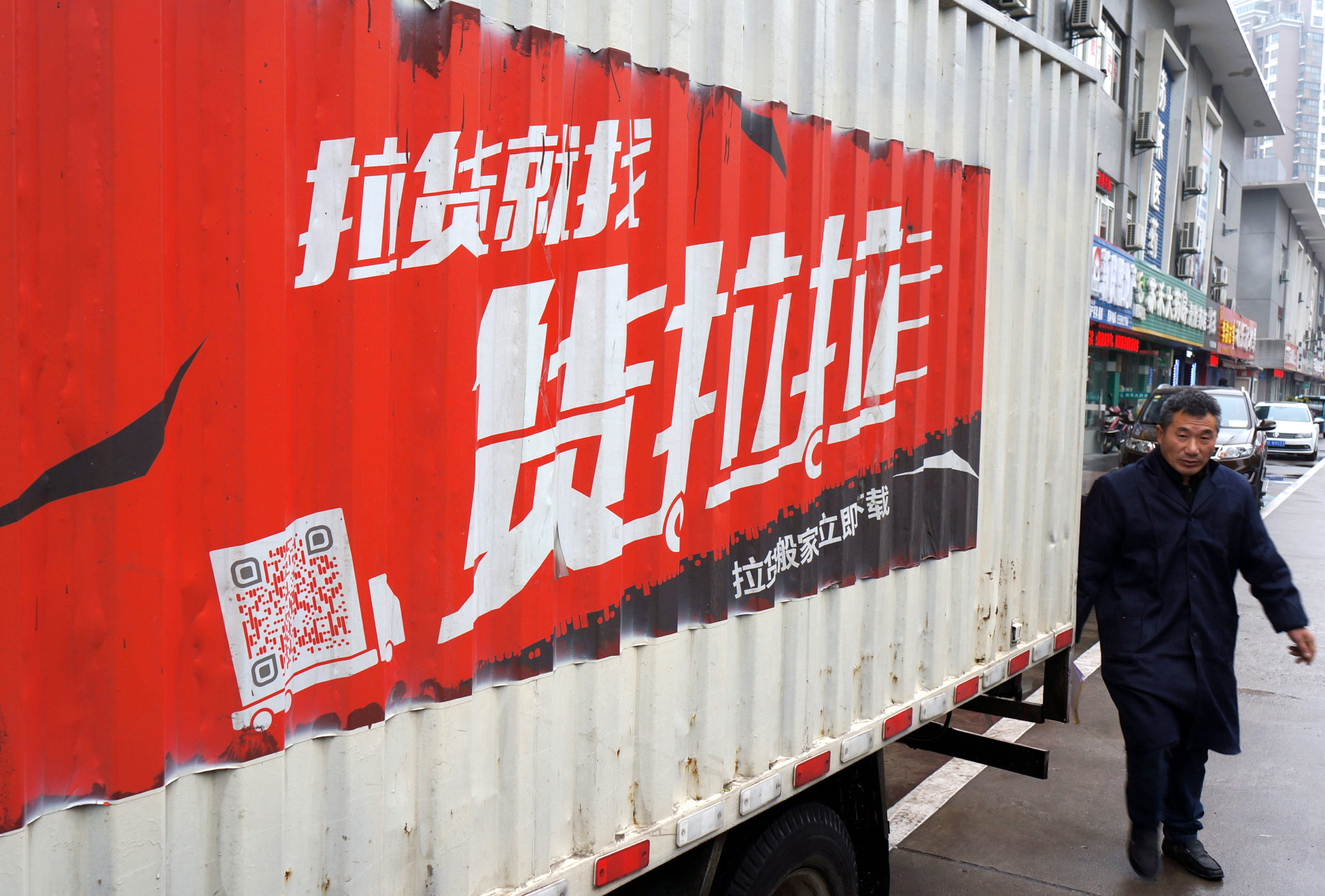Woman’s death raises safety concerns about ride-hailing services in China, again
Lalamove, a Hong Kong–based same-day delivery and logistics services provider known as Huòlālā 货拉拉 in mainland China, has come under fire in the wake of the death of a 23-year-old woman.

Lalamove, a Hong Kong–based same-day delivery and logistics services provider known as Huòlālā 货拉拉 in mainland China, has come under fire in the wake of the death of a 23-year-old woman in Changsha, Hunan Province, who hired a moving van and driver from the platform and jumped out of the vehicle while it was traveling.
The young woman, surnamed Chē 车, was hit by passing traffic at around 9:30 p.m. on February 6 when she exited the van through the window of its front passenger seat. She was later pronounced dead in a hospital on February 10 after suffering serious head injuries.
According to Che’s older brother, the driver picked up the victim on the night of the incident from her old apartment. After loading the vehicle with boxes of household goods, she took a ride with the driver to her new place of residence. During the ride, which was supposed to take around 20 minutes, Che messaged her colleagues on WeChat about work-related issues. It was her last communication with anyone prior to her sudden jump.
In an interview (in Chinese) with the Beijing News, the brother said that while checking Lalamove’s app on Che’s phone, he discovered that the driver had veered off the app’s recommended route three times. While Che didn’t warn anyone that her safety was in jeopardy while en route, her family suspected that the driver’s “unusual behavior” was related to Che’s “extreme action,” according to Che’s uncle (in Chinese).
In a statement (in Chinese) released on February 21, Lalamove confirmed Che’s death but offered no explanation as to why she jumped from the moving van or why the driver deviated from the route suggested by the app. “We feel deep sorrow and regret about the unfortunate event,” the company said, adding that while its initial conversation with Che’s family, which took place right after her death, was not very fruitful, it would continue holding closed-door meetings with them and cooperating with an ongoing investigation carried out by the police.
However, on Weibo, a person who claimed to be Che’s younger brother painted a different picture of Lalamove’s handling of the situation. In a lengthy, emotion-packed post (in Chinese) yesterday, the person, writing on behalf of Che’s family, accused the company of ignoring their needs and feelings when Che was hospitalized.
He also raised questions about Lalamove’s driver-screening process and its app’s lack of a feature that allowed passengers to record audio or video of their rides. “Why did the driver choose what seemed like a longer route that didn’t have surveillance cameras? Was there a premeditated attack? Did Lalamove do enough to vet its drivers?” he wrote. “As a provider of car-hailing services, why didn’t Lalamove have any measures in place to ensure customer safety?”
Established in 2013 in Hong Kong, Lalamove is a major player in the business of on-demand van-hailing and courier services in China. With an active presence in Asia, Latin America, and the U.S. — where it connects over 7 million registered users with a pool of over 700,000 driver partners, according to its website — the startup was one of the first in Hong Kong to hit the $1 billion unicorn valuation mark. Following a $300 million funding in its series D round in 2019, the company is currently looking to raise another $500 million as the global market for transportation and logistics is experiencing a surge in demand from pandemic-driven ecommerce.
Although there has been no definite word on what caused Che to take the fatal leap, her death has cast doubt on how safe it is for women in China to use ride-hailing services, an issue that was first brought to light in 2018, when Didi Chuxing, China’s top ride-sharing app, suspended its inter-city carpooling service following two murders of female passengers at the hands of their drivers.
Since then, Didi Chuxing has taken steps to improve safety, such as allowing passengers to contact the police directly from its app and making in-trip audio recording compulsory on its platform. In its first-ever safety report, released in June 2020, Didi Chuxing said that since it resumed its ride-sharing feature in November 2019, the company had received only 45 safety complaints from passengers and had rejected 317,792 people applying to be its drivers because of problems with their background checks.
Update: The driver, a 38-year-old man from Changsha, was detained by police on February 23 on charges of negligent homicide, according to Thepaper.cn.






